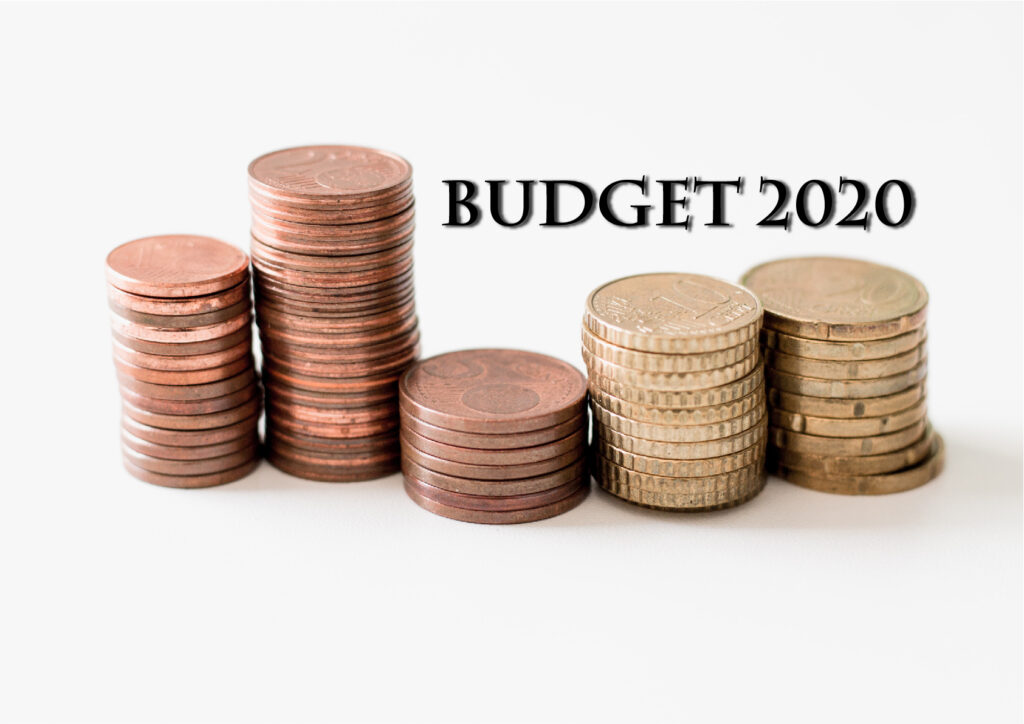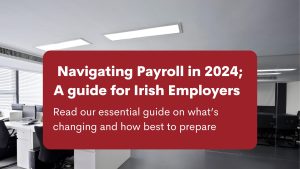Budget 2020 will no doubt be remembered as the Brexit Budget. While Brexit may have curtailed any possibility of the Government announcing a generous giveaway budget before a General Election next year, it can also be used as an excuse by the Government to justify the decisions taken in this Budget.
This Budget is an opportunity for the Government to show that it is prepared for Brexit with up to €500 million being diverted from the Rainy Day Fund to shore up the Brexit Contingency Fund.
The Budget also placed heavy emphasis on Climate Change and a range of measures was introduced to meet Ireland’s commitment to an integrated Climate Action Plan.
TAXATION:
Taxation Benefits:
- Increase in the Earned Income Credit for the self-employed by €150 to bring the value of the credit to €1,500
- An increase in Home Carer Credit of €100 to bring the value up to €1,600
- An extension of the reduced rate of USC for medical cardholders for a further year to December 2020
- Increase in the Group A Capital Acquisitions Tax threshold for gifts/inheritances from parents to children from €320,000 to €335,000
- Amendments to the R&D rules for qualifying pre-trading and outsourced expenses
- Increase in Research & Development tax credit from 25% to 30% for small & micro-companies.
- Employment & Investment Incentive (EII) Scheme rules relaxed to grant all of the relief in year 1
- Enhancements to the Key Employee Engagement Programme (KEEP)
- Extension of the Special Assignee Relief Programme (SARP) in its present format until 31 December 2022.
- Extension of the Foreign Earnings Deduction in its present format until 31 December 2022
- The production ceiling for Microbrewery Relief raised from 40,000hl to 50,000hl
- Diesel Rebate Scheme Relief for Hauliers due to an increase in carbon tax
- Extension of Capital Gains Tax Relief for Farm Restructuring
- Introduction of relief from betting duty and betting intermediary duty up to a limit of €50,000 per the calendar year. This relief only applies to single undertakings.
Tax Raising Measures include:
- Increase in the Dividend Withholding Tax (DWT) rate from 20% to 25% from 01/01/2020
- From 01/01/2021 a modified DWT regime will be introduced
- No change in the rate of Corporation Tax
- Increase in the rate of Stamp Duty by 1.5% on a non-residential property with effect from 09/10/2019
- Introduction of 1% Stamp Duty rate on certain company acquisitions schemes
- New measures will be announced to prevent aggressive tax avoidance by Irish Real Estate Funds.
- Introduction of anti-hybrid corporate tax rules and changes to transfer pricing rules with effect from 1 January 2020.
- The price of a packet of 20 cigarettes will increase by 50c from 9th October 2019
There will be no across the board tax cuts for individual taxpayers.
Housing:
- Help to Buy (HTB) extension in its present format until 31 December 2021.
- Living City Initiative Extension in its present format until 31 December 2022
- €80m will go towards Housing Assistance Payment
- €1.1 billion will support the building of 11,000 social houses in 2020 with a further 12,000 to be built in 2021
- An extra €20m has been allocated for homeless services
- €13m to be provided for the Warmer Homes scheme
Health:
- Increase of 6.3% in spending to €17.4bn in 2020
- An extra €25m on the National Treatment Purchase Fund to help reduce waiting lists
- Prescription charges to be reduced by 50c
- The monthly threshold for the Drug Payment Scheme is being reduced by €10 to €114
- Free GP care for children under the age of 8
- Free dental care for the under 6s
- The threshold for medical card income for people over the age of 70 will increase by €50 to €550 for one person or by €150 to €1,050 for a couple.
The announcement of free dental care for the under 6s has been met with some scepticism from Dental Practitioners
Social Welfare:
- A 100% Christmas bonus this year
- €5 increase in Living Alone Allowance in 2020
- €15 increase for the One-Parent Family Payment and Jobseeker Transition
- €10 for the Working Family Payment income threshold for families with up to three children
- Increases in the Qualified Child Payment by a further €3 for over 12s and €2 for under 12s
- €2 a week increase in fuel allowance
Education:
- Over €11 billion will be provided to the Department of Education & Skills in 2020, the highest ever to be received by that Department.
- This will include 150 new mainstream teaching posts in schools and investment of €1.9 billion in special education.
- 400 additional posts to support those with special educational needs
- 1,000 more Special Needs Assistants to be hired
Business and Agriculture:
Measures were announced to assist businesses to deal with the impact of Brexit, including:
- €1 billion will go to the Department of Business, including €10m for disruptive technologies fund and €600m for a Brexit loan and growth scheme
- Farm restructuring relief will be extended until 2022
- Investment of €2bn in rural Ireland
- Increases in allocation to the Department of Transport, Tourism & Sport
Environmental Measures:
- A carbon tax increase of €6 per tonne
- The increase will apply to petrol from 9th October 2019 but the increase for other fuels may be delayed until May 2020.
- The 1% diesel surcharge will be replaced by a nitrogen oxide emissions-based charge.
- It will apply to all new cars registered from January 1, 2020.
- Benefit in Kind to have an environmental rationale for commercial vehicles from 2023
- Extend BIK zero rate on electric cars to 2022
- Extend VRT relief on hybrids to 2020
- Diesel rebate scheme for hauliers to compensate for fuel cost increases.
Brexit:
Brexit formed a large backdrop to Budget 2020 and measures announced to assist businesses to deal with Brexit include:
- A package of more than €1.2bn, excluding EU funding, for Ireland has been announced to respond to a no-deal Brexit.
- €200m of this expenditure for next year will be used to increase staffing across government departments and upgrade ports and airports.
- A fund of €650m will go to support the agriculture, enterprise, and tourism sectors in the case of no-deal. €220m will be deployed immediately.
- There will be a €110 fund for businesses, including a €45m transition fund and €42m rescue and restructuring fund.
- €8m transformation fund for food and non-food businesses
- €5m for microfinance Ireland
- €5m for LEO Brexit Fund
- €2m for Intertrade Ireland
- €3m for regulatory bodies
There are also supports for beef farmers, fisheries, livestock farmers and for food and drinks processing.
As expected, it was a cautious budget designed to protect our economy in light of the prospect of a no-deal Brexit, while keeping in mind Ireland’s obligation to implement environmentally friendly policies. The cost of implementing some of these policies will be borne by the majority of taxpayers.





